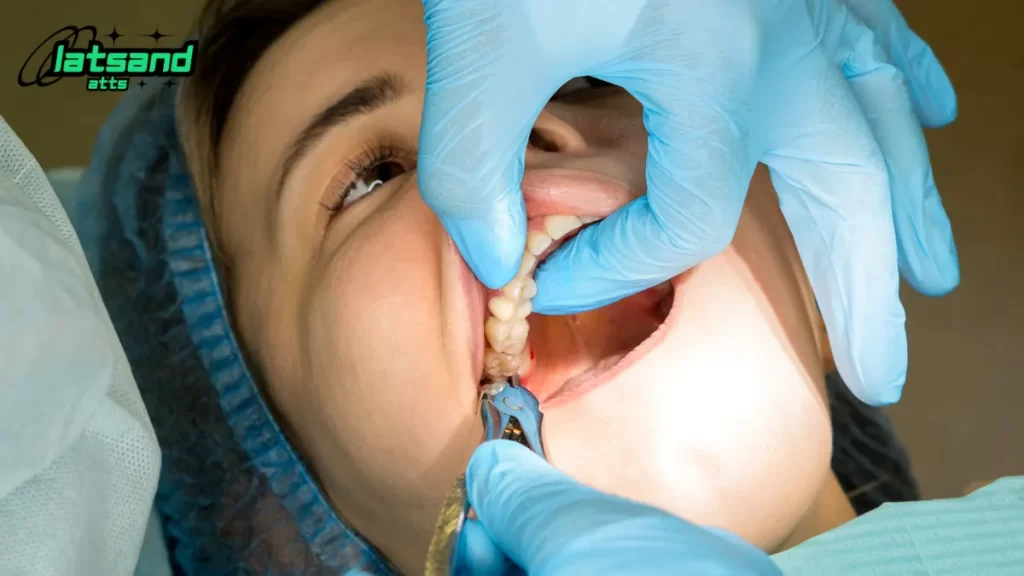Table of Contents
Can you keep your wisdom teeth without pain? This is a common question many people ask as their wisdom teeth start to emerge. Wisdom teeth, the last set of molars, can be tricky. Some people experience no pain at all, while others face discomfort. This article will explore whether it’s possible to keep your wisdom teeth pain-free, what causes the pain, and what you can do to manage it.
What Are Wisdom Teeth?

Wisdom teeth are the third and final molars growing at your mouth’s back. They typically appear in late teens or early adulthood. For some, wisdom teeth grow without any issues. However, for many, these teeth can cause discomfort. They might become impacted, or there may not be enough room in your mouth for them. So, can you keep your wisdom teeth without pain? The answer depends on various factors.
Why Do Wisdom Teeth Cause Pain?
Wisdom teeth can cause pain for several reasons. Here are the most common ones:
- Lack of Space: Sometimes, there isn’t enough room in your mouth for wisdom teeth to grow correctly. This can cause them to become crowded or misaligned.
- Impaction: When a wisdom tooth doesn’t fully erupt, it can get stuck beneath the gum, leading to pain.
- Infection: Wisdom teeth are located far back in the mouth, making them harder to clean. This can result in infections, cavities, or gum disease.
If your wisdom teeth are causing pain, you must see your dentist to figure out what’s going on.
Can You Keep Your Wisdom Teeth If They Don’t Hurt?
Yes, you can keep your wisdom teeth if they don’t hurt and aren’t causing any problems. If they grow straight, are healthy, and don’t disrupt other teeth, there’s usually no need to remove them. Many wonder, can you keep your wisdom teeth if they don’t cause pain or issues? However, even if they don’t hurt, regular check-ups with your dentist are essential to ensure they aren’t causing any hidden problems.
Keeping your wisdom teeth without pain is possible, but you must maintain oral hygiene and visit your dentist regularly to catch any potential problems early on.
Also Read: Food Therapy for Kids: Unlocking Health and Happiness
Tips to Keep Wisdom Teeth Without Pain
To keep your wisdom teeth without pain, there are a few things you can do:
- Brush and Floss Regularly: Make sure you clean your wisdom teeth well, as they are harder to reach. This can help prevent infections and gum disease.
- Visit Your Dentist Regularly: Regular check-ups allow your dentist to monitor your wisdom teeth and spot any issues before they become painful.
- Eat a Balanced Diet: A healthy diet helps maintain strong teeth and gums, reducing the risk of infections.
Taking these steps can help you avoid wisdom teeth pain and keep them for the long term.
When Should You Remove Wisdom Teeth?
While you may be able to keep your wisdom teeth without pain, there are times when removal is necessary. Here’s when you might need to consider having them taken out:
- Pain or Discomfort: If your wisdom teeth are causing persistent pain, it might be time for removal.
- Crowding or Misalignment: Wisdom teeth can push against other teeth, causing alignment issues.
- Partial Eruption: If the tooth doesn’t fully emerge from the gum, it can trap bacteria and lead to infections.
Your dentist will help you decide whether keeping or removing your wisdom teeth is the best option for oral health.
What Happens If You Ignore Wisdom Teeth Pain?
Ignoring wisdom teeth pain can lead to more severe problems down the road. Here are some potential consequences:
- Infections: Bacteria can build up around partially erupted wisdom teeth, leading to painful infections.
- Tooth Decay: Impacted wisdom teeth can develop cavities quickly because they are harder to clean.
- Jaw Issues: In rare cases, impacted wisdom teeth can cause cysts or other jawbone problems.
If you feel pain around your wisdom teeth, seeing your dentist as soon as possible is essential to prevent these complications.
Also Read: Can You Keep Your Wisdom Teeth Without Pain?
Can You Avoid Pain With Early Monitoring?

Yes, early monitoring of wisdom teeth can help prevent pain before it starts. By visiting your dentist regularly, they can take X-rays and check the growth of your wisdom teeth. This allows you to catch any potential problems before they cause pain. Your dentist may recommend a “wait-and-see” approach if your wisdom teeth look like they will grow normally.
However, if your wisdom teeth are causing pain, you must consult your dentist immediately. They can advise whether removal is best for your long-term oral health. Keeping your wisdom teeth without pain is possible but requires care and attention. Always prioritize your dental health to ensure a pain-free experience with your wisdom teeth.

